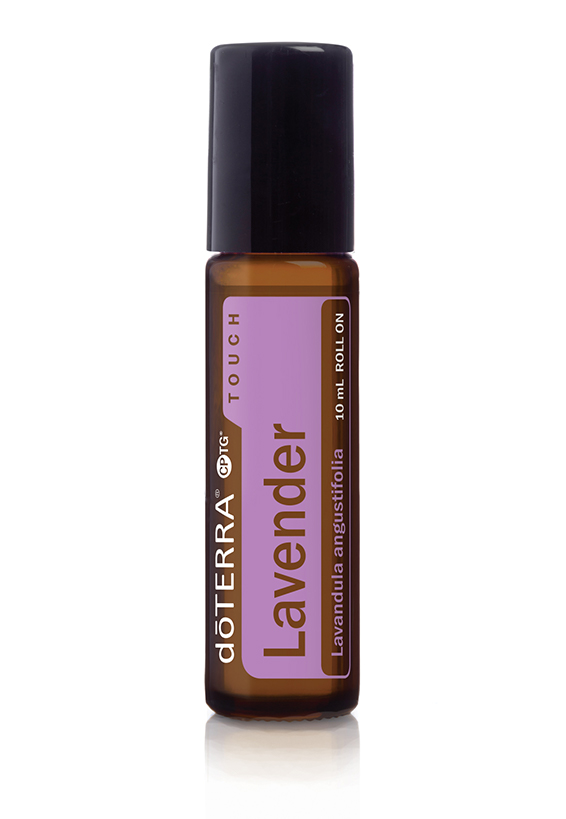doTerra Essential Oil: Lavender Touch
R335.00
Lavender (Lavandula angustifolia) 10 ml
Normal retail price: R386.66, get it now at our special discounted price of R309.33!
Applied topically, Lavender is frequently used to reduce the appearance of skin imperfectskiions. Add to bath water to soak away stress or apply to the temples and the back of the neck. Add a few drops of Lavender to pillows, bedding, or bottoms of feet to relax and prepare for a restful night’s sleep. Due to Lavender’s versatile properties, it is considered the must-have oil to have on hand at all times.
Also used for: Agitation / Allergies / Anxiety / Appetite loss / Arrhythmia / Atherosclerosis / Bites & stings / Blisters / boils / Breasts (soothes) / Burns / Calming / Cancer / Concentration / Convulsions / Dandruff / Depression / Diaper rash / Dysmenorrhea / Exhaustion / Fever / Gangrene / Insect repellent / Grief or sorrow / Hair – dry, fragile, loss / Hay fever / Hyperactivity / Impetigo / Inflammation / Insomnia / Itching / Mastitis / Menopause / Mental stress / Mood swings / Pain / Parkinson’s disease / Physical stress / Poison oak or ivy / Postpartum depression / Rashes / Relaxation / Sedative / Seizure / Skin – dry, sensitive, ulcers / Sleep / Stress / Teeth grinding / Tension / Thrush / Ticks / Vertigo / Withdrawal / Worms / Wounds / Wrinkles
For more info, or to join the doTerra team, go to http://mydoterra.com/agape4life
Description
Each doTERRA essential oil is also carefully and thoroughly tested using the strict CPTG Certified Pure Therapeutic Grade® quality protocol. Experienced essential oil users will immediately recognize the superior quality standard for naturally safe, purely effective therapeutic-grade doTERRA essential oils.
While there is a science to the distillation of essential oils, it is also an art. Distillers not only rely on years of experience, they also employ modern technologies and techniques.
The most common method of extracting essential oils is a low-heat steam distillation process. In this process, pressurized steam is circulated through plant material. The essential oils are liberated from the plant and carried away by the steam. When the steam cools, the water and oils naturally separate and the oil is collected. To ensure the highest quality oil extract with the correct chemical composition, the temperature and pressure must be closely monitored. Too little heat or pressure and the oil will not release; too much, and the oil’s composition and potency will be affected.
Steam Distillation
Steam distillation is the most common way to extract aromatic compounds (essential oil) from a plant. During the steam distillation process, steam passes through the plant material. The combination of heated steam and gentle pressure causes the essential oil to be released from microscopic protective sacs. As the vapor mixture flows through a condenser and cools, it yields a layer of oil and a layer of water. The essential oil rises to the top and is separated from the hydrosol (floral water) and collected.
Some have asked about the difference between first distillations in comparison to complete distillations. The temperature for steam distilling is usually between 140–212 degrees Fahrenheit. Since different plants require different pressures, times, and temperatures, using this particular distillation method makes it possible to adjust the temperature based on the plant type, making it a very effective and precise way to obtain the purest compounds.
Expression
Unlike steam distillation, expression, sometimes referred to as “cold pressed,” does not involve heat. In this process, oil is extracted from the product under mechanical pressure. doTERRA uses expression to extract all of its citrus oils, such as Wild Orange, Lemon, Lime, Bergamot, and Grapefruit, from the rind.
Proper distillation requires a consideration for the uniqueness of pressure, temperature, time, and harvesting practices, each of which may be as diverse as the plants themselves. A poor distillation process can alter or destroy the necessary aromatic compounds that comprise the essential oil, leaving a substance far different from the intended goal and something that would not be used to support health and wellness. For this reason, the best distillation artisans dedicate their efforts and work to only a few select plants. This focused effort develops proper knowledge and experience, helping ensure congruency between the oil chemistry of the plant and its distilled form.






